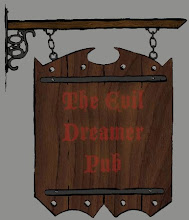Last week The New York Times reported that today’s young adults are in danger. Apparently, because of one cultural shift or another, our youth are no longer impressed by the ultimate tale of teenage disillusionment, and have added to their roster of irreverence J.D. Salinger’s masterpiece, Catcher in the Rye.
This, to be sure, is a tragedy of elephantine proportions (Mrs. Wordsmith shares this opinion). The novel’s main character, Holden Caulfield, embodied the absurdity of adolescence with such depth that generations were forever changed after a single reading of the novel. Apparently, that time has passed, and as the Times reports, young readers identify with Holden less and less.
To understand why I find this trend so troubling, the Horny Wordsmith must share with my readers my own experience with Catcher in the Rye. I read this novel at the transformative age of 15. So great was this novel’s effect on my personality, that I credit it with setting my intellectual life on the trajectory it still follows today. Further, it initiated an identity crisis where my mental state hit the rock bottom Erik Erikson describes as the basis for rebuilding oneself into a great man of history.
Age 15 was a tumultuous time in my life. The Horny Wordsmith, like Holden Caulfield, had led a life where there was little to complain about. The byproduct of this relative ease was that everything in life as a child appeared so simple. It was easy to fall into idealism. Every problem had a solution. Anything wrong or evil could be stopped. Ugliness could be excised. Honesty, excellence and love are easy to achieve. These are the ideals the adult culture communicate to children, and until some jarring circumstance comes along to disrupt these virtues, one continues to function oblivious to the true ugliness, complexity and unhappiness adulthood carries.
At some point around the time I read Catcher in the Rye I started to become aware of these complexities. There was no great jarring event, but I recall that in discovering the fact that my peers began experimenting with drugs, alcohol and sex I started to see some of this adult ugliness. I also began to feel the weight of obligation that comes with adulthood, and that produced a certain amount of anxiety.
In the novel Holden makes excessive use of the word “phony,” which looking back I recognize I gave my own meaning. Phonies were those that tried to mask harsh reality from others, either through obfuscation or inanity. My initial reaction was that of Holdens. I met this phoniness with scorn. I resented others, felt helpless and sunk into depression because I did not know yet fully understand what I was confronting. Like Holden, I kept hoping I could run away to a place where I would be away from the phonies and the ugliness and I could be happy once again.
One day, however, I returned to the world. I was no longer upset, and I began to have a more nuanced view of society. I realized it was possible to have complex emotions, to be happy and unhappy in the same moment and thrive on the complexity of terrifying circumstances. I dare say my whole life has now been built on confronting the dreadful, first in my study of journalism and history and later as a criminal defense attorney. Everyday of my working life I meddle in the complexities of truly horrifying events, and I am in part ready to do so as a result of that identity crisis I suffered when I was 15.
So upon reading that similarly situated young people either do not understand or do not identify with Holden Caulfield pains me because I wonder if they have missed that wallowing, pitiful experience that could make them stronger human beings.
On the other hand, these youths may understand the novel without understanding it. Holden’s attempt attitude and attempt should be ultimately rejected. But without the extensive emotionally crushing experience the whole novel is lost on them. At least they have Harry Potter.
Wednesday, July 1, 2009
Subscribe to:
Post Comments (Atom)

No comments:
Post a Comment